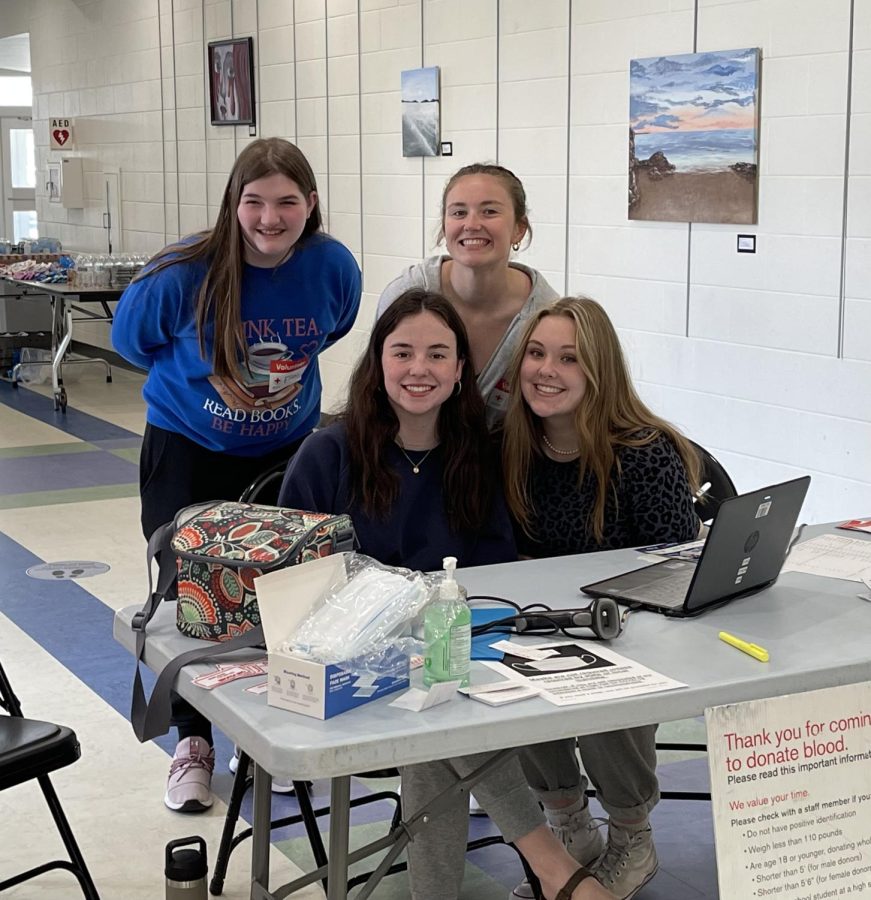Bleeding Purple
Student Senate members volunteer to help run the blood drive.
Student Senate held a blood drive April 25 in the Performing Arts Center. This blood drive was held to give back to the community during a world wide deficit of blood.
Junior and Student Senate secretary Evan Loftus organized this year’s blood drive. This experience was new for Student Senate as this is the first year they hosted the blood drive.
“As an exec board, we have weekly meetings and we stay up to date on current events not only in our school but in the world. One of [the current events] is how we’re in a deficit of blood. We need blood donations, and normally DECA usually has [a blood drive], but since this year [has been] a little bit crazy, especially for DECA when they’re trying to get their feet back on the ground, we’re trying to take something off their plate as well as do something good,” Loftus says.
Providing blood for the community is not the only reward for those who donated. Loftus says students who gave blood will receive gift cards and a chance for a $100 scholarship.
“Anyone that donates gets a $10 gift card, which will be sent to them through their email. If we get 32 pints of blood, which is around 30 people, a scholarship for an outgoing senior will be given out. It’s something to get them motivated to actually donate. It’s really beneficial as well, just in general, and it helps you give back to your community,” Loftus says.
Loftus says there were some requirements students had to meet in order to donate blood.
“There are some restrictions. There is an age limit – you have to be at least 16. If you are under 18 you have to have consent [from a parent], but then below that, you can’t donate,” Loftus says.
Besides the age requirement, there are some things students must keep in mind if they plan to donate in the future. According to the Red Cross’s pamphlet, “A Student’s Guide to Blood Donation,” students should get at least eight hours of sleep, eat a healthy breakfast or lunch, and drink extra water in the days leading up to your appointment.
During donations students should try and relax. The Red Cross suggests lifting your legs and holding for a few seconds to release nervous tension. The Red Cross also recommends communicating with the staff member who is overseeing your donation, and if you experience something wrong, alert staff immediately.
After donation the Red Cross suggests students sit and relax for fifteen minutes while enjoying a tasty snack and drink. Student athletes should also make sure to decrease activity for at least twenty-four hours after donating blood.
Students who missed this year’s blood donation through the school can look into donating at any Red Cross donation center. Loftus says donating is helpful and something people should consider.
“[Blood donating is] really beneficial in general and it helps you give back to your community,” Loftus says.

Senior Autumn Evenson is the Norse Stars distribution manager as well as a staff writer. Autumn's favorite part of Norse Star is the atmosphere.
Outside...







